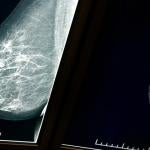Risperdal Settlement
(Updated Oct. 30, 2017)
There is a strong precedent for settlement in Risperdal lawsuits. From 2012 to 2013, drug maker Johnson & Johnson settled more than 80 such cases for undisclosed amounts. The most recent confidential settlement occurred on November 2, 2016.
In 2016 J&J lost three individual Risperdal lawsuits that went to trial. The awards in these cases totaled nearly $5 million, with Austin Pledger alone receiving $2.5 million (see below: “Pledger”).
But even those awards pale in comparison to Andrew Yount, who was awarded $70 million by a Philadelphia jury in July 2016. The jury ruled that J&J had not only failed to warn Mr. Yount about taking Risperdal but had destroyed evidence related to the case.
With thousands of these cases yet to go to trial, and the memory of these massive awards fresh in their minds, experts expect J&J will reach settlements in most Risperdal lawsuits to save themselves time and money.
Here is a brief history of Risperdal settlements.
State of Texas v. Johnson & Johnson (2012)
In January 2012, Johnson & Johnson agreed to pay $158 million to settle a lawsuit filed by the State of Texas alleging that J&J illegally marketed Risperdal to state residents on Medicaid.
After the settlement, Texas attorney general Greg Abbott stated: “Johnson & Johnson’s scheme to profit from the Medicaid program by overstating the safety and effectiveness of an expensive drug and improperly influencing officials ended up costing taxpayers millions of dollars.”
36 States v. Johnson & Johnson (2012)
In August 2012, Johnson & Johnson agreed to pay $181 million to 36 states and the District of Columbia to settle fraud charges related to its unlawful marketing of Risperdal. The New York Times reported, “In resolving the allegations by the states, Janssen did not admit wrongdoing or that it violated the law and said it settled to avoid ‘unnecessary expense and a prolonged legal process.’”
Banks et al v. Johnson & Johnson (2012)
Aron Banks was prescribed Risperdal off-label at age nine: the drug caused him to grow breasts so large, they had to be surgically removed. He was the first Risperdal plaintiff whose case went to trial. After just one day in court, Johnson & Johnson settled Mr. Banks’ case for an undisclosed amount.
There were five more cases to follow Mr. Banks’, which were considered bellwethers. J&J reached undisclosed settlements for all of them.
77 Plaintiffs v. Johnson & Johnson (2013)
In January 2013, Johnson & Johnson reached undisclosed settlements with 77 more plaintiffs who had filed lawsuits over Risperdal side effects. Later that year, the plaintiffs filed a motion to enforce that settlement, claiming that J&J had not honored its terms and had no intention of doing so.
U.S. Department of Justice v. Johnson & Johnson (2013)
From 1999 to 2005, the FDA repeatedly warned J&J about promoting Risperdal for use by young people. During this time, the Justice Department says that Janssen promoted Risperdal for use in children and individuals with mental disabilities. The company knew that Risperdal posed “certain health risks to children, including the risk of elevated levels of prolactin, a hormone that can stimulate breast development.”
In November 2013, Johnson & Johnson paid a $2.2 billion fine to settle a Justice Department investigation into its promotion and marketing of Risperdal. This was one of the largest such fines in American pharmaceutical history.
State of Montana v. Johnson & Johnson (2014)
In March 2014, Johnson & Johnson agreed to pay the State of Montana $5.9 million to settle the same kinds of unlawful and deceptive marketing charges it faced in Texas; Washington, D.C.; and 36 other states.
Pledger v. Johnson & Johnson (2015)
In 2002, Austin Pledger, an autistic boy from Alabama, grew breasts after taking Risperdal—which was prescribed to him off-label. (The FDA didn’t approve Risperdal for use by children until 2006.) He was ridiculed by his peers for his breasts, which eventually grew to be size 46DD.
Mr. Pledger (now 21) filed a lawsuit against J&J to hold them accountable for their egregious concealment of Risperdal’s potential side effects. In February 2015, a Philadelphia jury sided with Mr. Pledger, awarding him $2.5 million in damages.
During the trial, former FDA chief David Kessler testified that J&J knew as early as 2001 that Risperdal could cause gynecomastia in as many as 5.5% of Risperdal users, but did not add a warning to the drug’s label until five years later, in 2006.
State of South Carolina v. Johnson & Johnson (2015)
In February 2015, South Carolina’s Supreme Court ruled that J&J had to pay the state $136 million, upholding an earlier ruling (one of many) that found the drug maker had unlawfully marketed Risperdal.
In the ruling, Justice John Kittredge wrote, “Janssen's desire for market share and increased sales knew no bounds, leading to its egregious violation of South Carolina law.”
Murray v. Johnson & Johnson (2015)
Nicholas Murray (now 21) was prescribed Risperdal off-label from 2003 to 2008, for symptoms related to his autism. As with Mr. Pledger and countless others, the drug caused him to develop gynecomastia. Even after he stopped taking the drug, Mr. Murray’s breasts remained.
In November 2015, a Philadelphia jury ruled against J&J once again, this time in favor of Nicholas Murray. After just two hours of deliberations, they awarded Mr. Murray $1.75 million in damages.
Strange v. Johnson & Johnson (2015)
In December 2015, yet another jury ruled against J&J. This time the plaintiff was a Wisconsin man named Timothy Strange, who was prescribed Risperdal as an adolescent (in 2006) to treat symptoms of Tourette syndrome. The jury awarded Mr. Strange $500,000 for J&J’s failure to warn him of the sizable risks involved in taking Risperdal.
Yount v. Johnson & Johnson (2016)
In July 2016, a Philadelphia jury awarded Andrew Yount a staggering $70 million, ruling not only that J&J had failed to warn Mr. Yount of the risks in taking Risperdal, but that the company had concealed or destroyed evidence related to the case.
Mr. Yount, of Tennessee, started taking Risperdal when he was just five years old. He, too, developed gynecomastia.
Byrd v. Johnson & Johnson (2017)
In October 2017, a jury awarded $1 million to 24-year-old Shaquil Byrd of Troy, New York. Mr. Byrd was prescribed Risperdal at the age of nine and quickly developed gynecomastia. He endured extreme bullying by his peers, and his breasts required surgical removal in 2014.
Have You Suffered from Severe Side Effects?
Our firm is one of the largest personal injury firms in the country, with more than 350 attorneys at our disposal. To date, we have won $5 billion for our clients.
If you or a loved one has suffered unforeseen side effects after taking a medication, please contact us. Don’t wait; these cases are time-sensitive, and you may be owed money.



